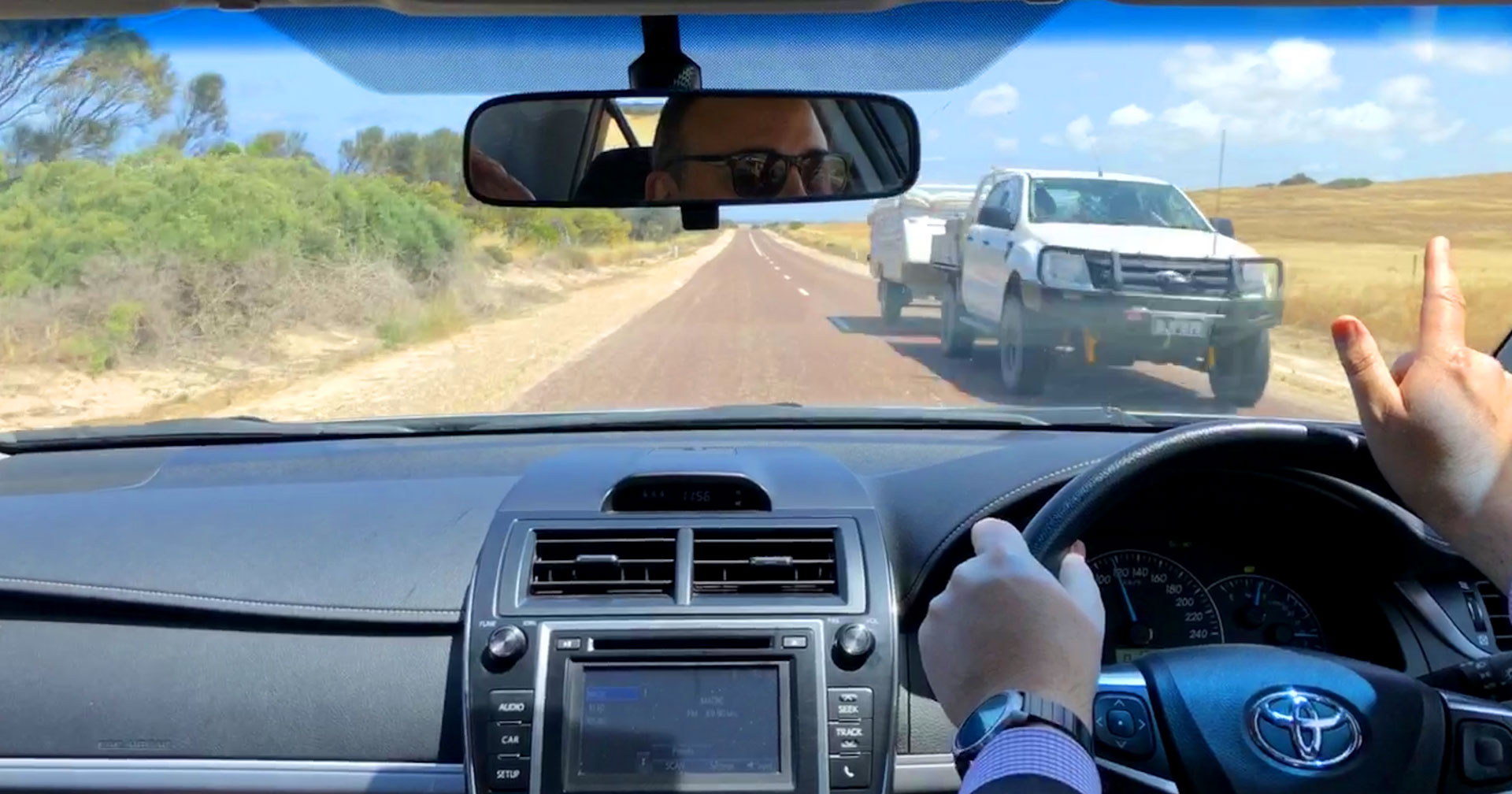This will be one of the shortest blogs I've ever written because it is about an observation from my recent road trip about the importance of empathy in business.
The two elements that prompted this reflection were the series of workshops I am currently running for the Tourism Industry Council SA, TiCSA, called Designing Better Customer Service in Tourism aka One Size Does Not Fit All, and the simple act of raising your finger as you pass motorists on country roads.
Both of these activities are based in empathy and have relevance to us and our marketing endeavours. Let me explain.
When we're alone we understand the importance of empathy
You don't realise how truly alone we all are until you drive into the remote parts of Australia.
Things we take for granted in suburbia (cafe around the corner, petrol station just down the road, doctor nearby, etc) are few and far between out west.
Even though the drive across the Nullarbor shows how truly vast Australia is, the drive from Port Lincoln to Ceduna was a decent taste of the distances between townships.
In fact, TiCSA CEO Shaun de Bruyn mentioned during the road trip that you can almost divide South Australia into three sections, each about 400km wide. You start on the eastern border and venture in about 400km and you get close to Port Augusta. The next section gets you close to Port Lincoln. And the final section takes you across to the western border; a region few South Aussies ever get to see.
Interestingly, you don't need to venture too far from "civilisation" to notice a change in how we interact with one another.
Suddenly, most motorists start lifting their finger as they drive past you on the road.
It is an endearing and comforting gesture.
Almost every driver did that on the road from Port Lincoln to Ceduna, as they did as I drove from Kingscote to Penneshaw the week before.
But why do we do that in these situations but not when we're driving in Adelaide?
I think there are two reasons:
- Many of the motorists in smaller, regional areas tend to know each other and, just like Adelaide Metro bus and tram drivers, they get used to waving at or acknowledging each other as they pass.
- At a deeper level, I think this action is triggered by a subconscious understanding that we are "on our own" to a degree and will rely on the help of strangers should anything go wrong
In many ways, driving in regional and remote areas can remind us of the importance of empathy in business, community, and family because suddenly it becomes clear that we do not exist alone and we need other humans in our lives.
So why should we care about marketing in business?
For marketers, it is important to remember that this deep need for human connection, for being able to reach out for support, for being acknowledged and understood, is always there, lurking beneath the surface of the layers of busyness and stress and worry that result from modern, suburban life.
So, this insight or reminder about the ever present yearning for empathy should help us understand that spending time deepening our understanding of our customers and clients (their needs, interests, motivations, concerns) is valuable because it can inform the way we structure our service or design and market our products, in a way that will resonate with others and attract them toward us.
But empathy can be a blunt tool, used for good or ill.
On the dark side of empathy in business, Liliana L. Bove points out in her Journal of Services Marketing article earlier this year, Empathy for service: benefits, unintended consequences, and future research agenda, the application of too much empathy by an employee to a customer can rob others of resources and fuel disconentment, likewise, some sleazy operators can just use empathy as an "ingratiation influence tactic" simply so they can manipulate customers to get what they want), it is a valuable foundation.
On the positive side, when we're able to feel empathically connected to our work, it can be a source of energy and daily motivation.
Our challenge in business is to find our corporate and personal bearings, our compass if you like, so we can give focus to our teams to help them and us stay "present" when we are at work, through being attuned to our own needs and motivations, and to those of our colleagues and clients/customers, in ways that are viable and productive.
I'm looking forward to working with many businesses next year, helping them to articulate and share the value their enterprises can bring to the world, which will include guiding some discussions and thinking about the "why" at the core of each business and team member.
My hope is I will start encountering less people who confide in me that they feel disengaged from their roles, and as a result are feeling lost and burnt out. Such a situation helps nobody, nor does it help our economy.
As you plan to journey onwards in the New Year, be reminded every time your raise your finger to a passing traveller, that we all gravitate towards a deeper sense of connection and that taking empathy in business seriously could position your enterprise as an important part of many people's lives.

